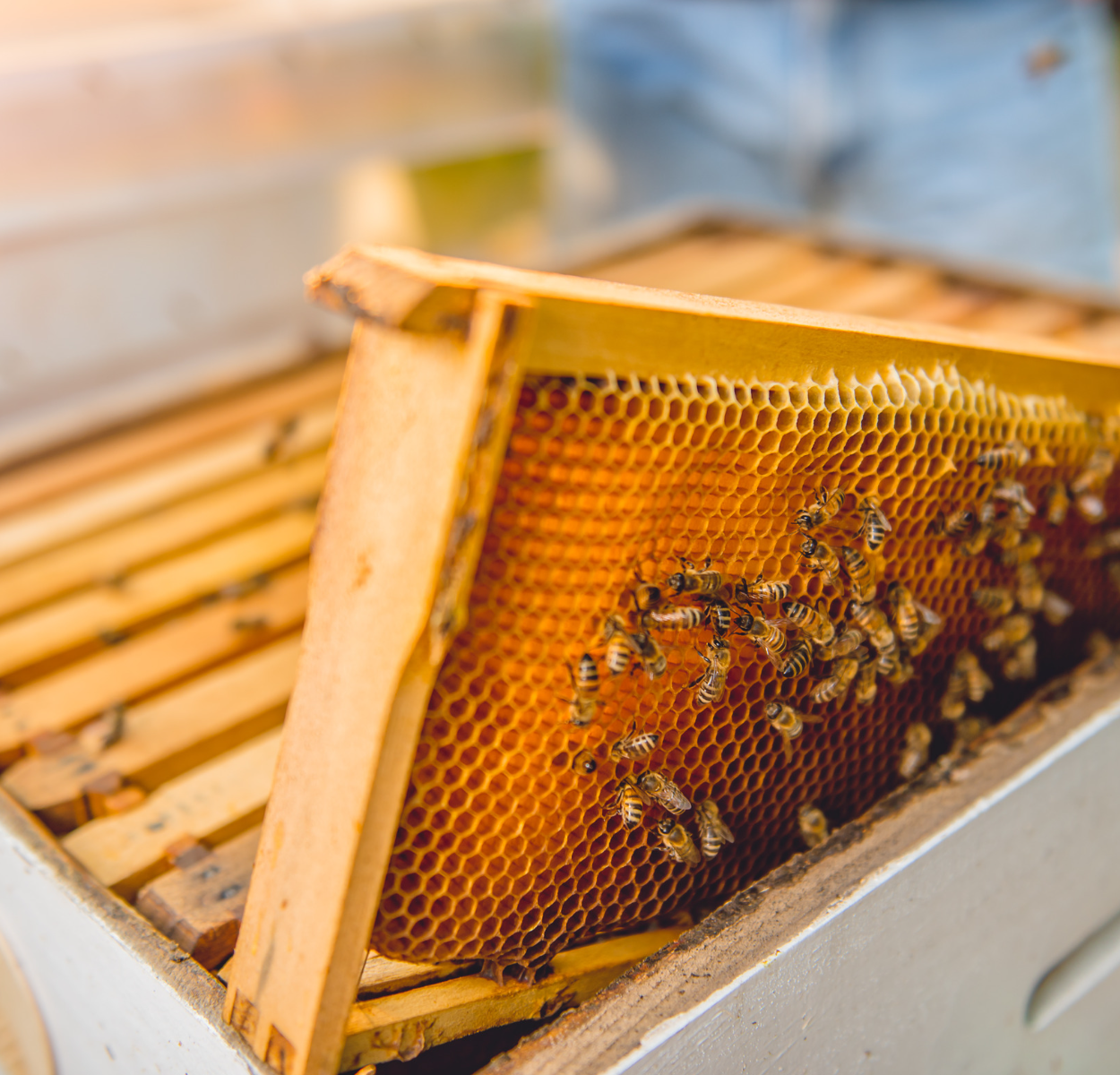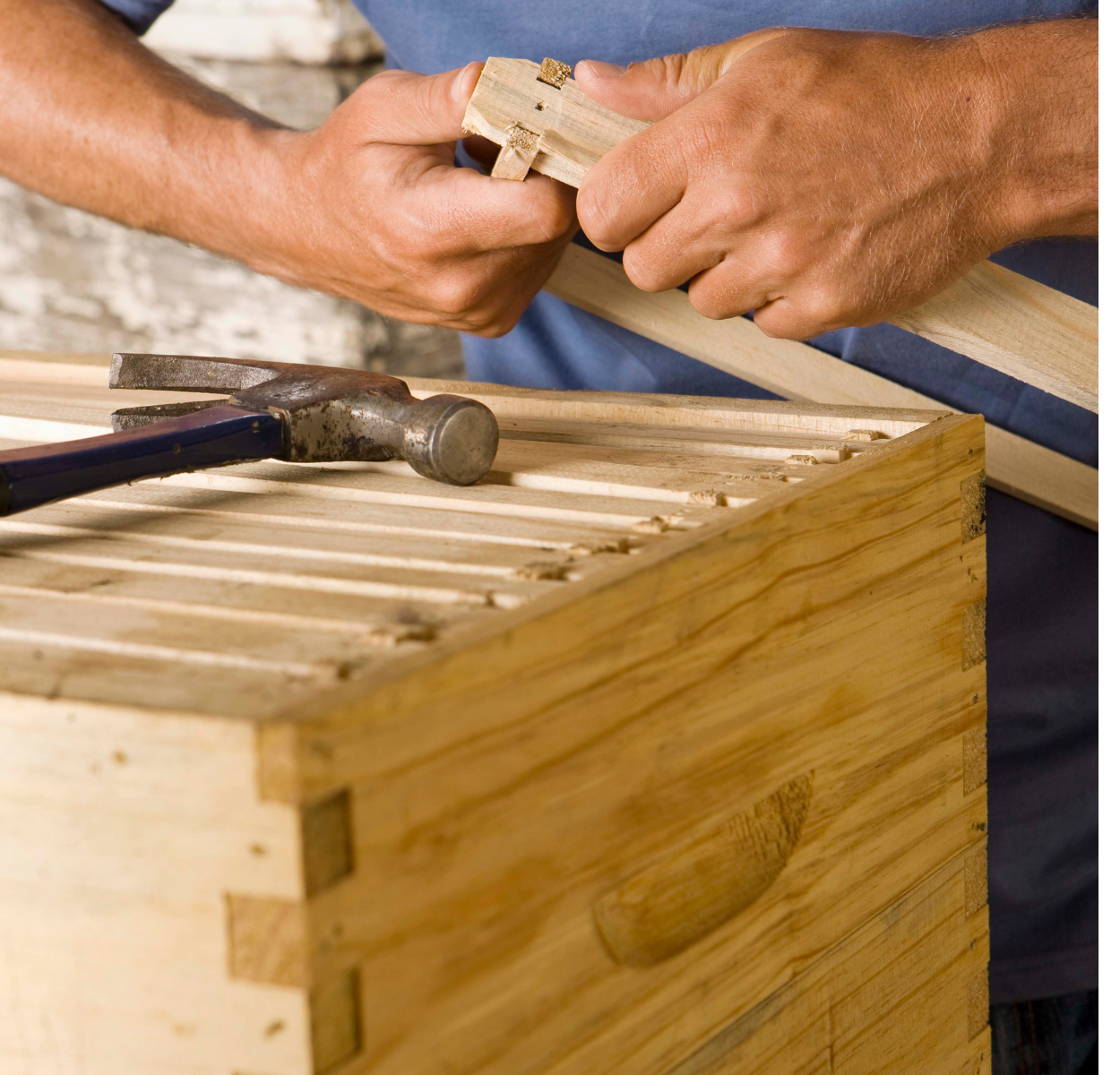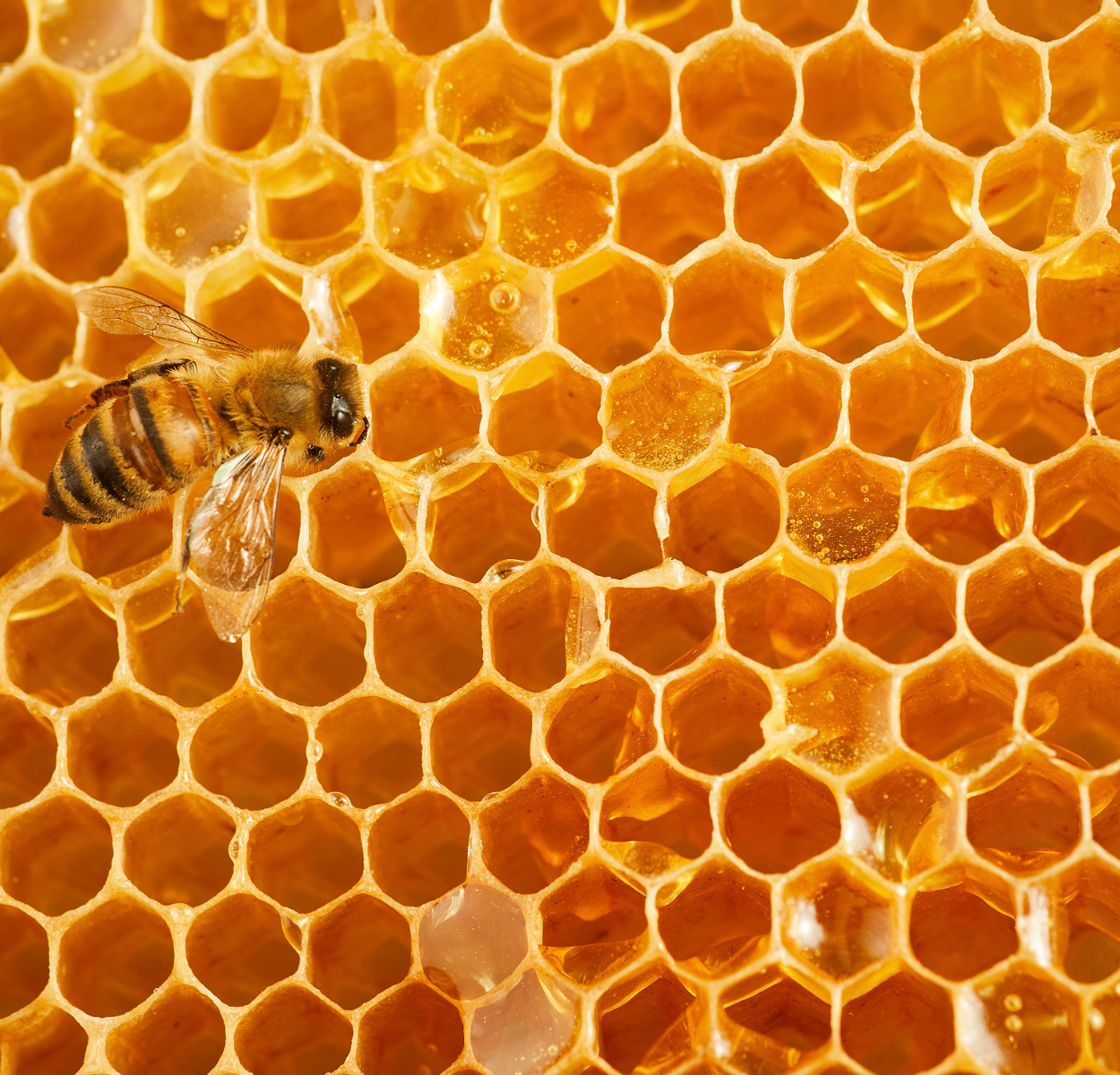Behind the Buzz
Urban Beekeeping 101
From Rooftop Beginnings to Beekeeping Basics: Our Journey and Tips for Budding Urban Beekeepers
Sustainable Practices
Our rooftop hives contribute to urban biodiversity and environmental stewardship.
Community Partnership
Collaborating with local beekeepers to promote education and awareness.
Our Story
It all began in 2008 on the rooftop of the Fairmont Royal York. David Garcelon, the hotel’s Executive Chef at the time, was enjoying a stroll through the herb garden that his kitchen team had nurtured for over a decade. As he and Melanie Coates (BEEGrrl), chair of the hotel’s environmental committee, admired the marigolds, chives, dill, and cilantro, they noticed a ladybug busily foraging. That’s when David had a thought—if ladybugs loved this rooftop garden, wouldn’t bees love it too?
The idea of rooftop beekeeping was both exciting and daunting. Neither David nor Melanie knew anything about bees, let alone beekeeping, and the concept of keeping hives 14 floors above ground seemed like a wild experiment. But, inspired by the success of urban beekeepers at The Paris Opera and rumours of a similar project at London’s Fortnum & Mason, they decided to explore the possibilities. With the innovative environmental stewardship of Fairmont Hotels and its parent company, Accor, they secured the support needed to turn their vision into reality.
Getting the go-ahead was just the first step. Next, David and Melanie had to become quick studies in the art and science of beekeeping. They partnered with The Toronto Beekeepers Cooperative (now the Toronto Beekeepers Collective), forming a community partnership with this dedicated group of volunteer urban beekeepers, who were also working with FoodShare Toronto. With two hives ready to go, Melanie headed off to a weekend-long beekeeping course in Peterborough, Ontario, to learn the ropes.
That beekeeping for beginners course was a game-changer, and I can’t stress enough how essential it is for anyone thinking of keeping bees to take a course, whether in person or online.

Tips for Starting Your Own Urban Apiary
Looking back on our journey from rooftop rookies to seasoned urban beekeepers, I’ve gathered some tips for anyone ready to start their own urban apiary:

1. Plan Your Year
Start by mapping out your hive responsibilities for the year, noting seasonal events and demands. Consider your budget and where to source your equipment.

2. Finding a Mentor
Connect with experienced beekeepers. The Toronto Beekeepers Collective was invaluable to us, offering mentorship from seasoned “keeps.”

3. Equipping Yourself
Before entering an apiary, ensure you have the necessary protective apparel and tools. A smoker, hive tool, gloves, veil, jacket, and long pants are must-haves. We carry all these in store.

4. Do Your Research
Equip yourself with knowledge through reading, online resources, or a Beekeeping 101 course. Preparation is key to success.

5. Join a Community
Seek out local beekeeping groups. Being part of a collective offers support and valuable advice from fellow keeps.

3. Be Realistic
Beekeeping isn’t a get-rich-quick venture. It demands time, attention to detail, physical strength, and passion.

7. Equip the Bees
To ensure your bees start off strong, avoid buying used woodenware, as it may carry diseases. Other items are less risky.

8. Build Your Hive
Construct your hive in this order: lid, inner lid, honey super, queen excluder, brood box, and bottom board. Use 9-10 frames per box for optimal space

9. Choose the Right Bees
Start small with two hives from a reputable breeder. Don’t forget to register your hives with local authorities to comply with regulations.

10. Choose a Suitable Location
Consider neighbours, family, and zoning laws. Ensure you have enough space, and avoid close proximity to other urban hives to minimize risks.

11. Keep Detailed Notes
Every hive visit is a learning opportunity. Keep a detailed record of your activities, observations, and any issues for future reference. If paper isn’t your jam, there are apps for this.

12. Stay Patient and Persistent
Beekeeping requires patience and a willingness to learn from mistakes. It takes time to develop your skills—stay committed, and don’t be discouraged by setbacks.
Latest from the Blog
A Friend in Mead is a Friend Indeed
Promise of a glorious fall day and a vacant seat in a friend’s car drew me to the Niagara region earlier this week. A dense morning fog, as thick as any found on the Atlantic shores, soon burned off to make way for a warm autumn day in the heart of Ontario’s wine...
Bee Yard at Collingwood
Oprah Winfrey has a connection to an Ontario apiary where bees have been farmed for over 50 years. I realize this may be a bit of a stretch, but while Oprah made her ground-breaking Toronto tour stop, I hosted an Oprah “tweet up” for Oprah super fans. There I met...
Bee Yard at Niagara
I first learned of this Beamsville, Niagara apiary through Chef David Garcelon. Chef had been investigating mead and he learned of a winery in Niagara that seemed to have the best product on the market. Chef wanted to make mead too, but chose to leave it to the...
Join Our Beekeeping Course Today!
Ready to dive into the world of beekeeping? Sign up for our comprehensive beekeeping course and start your journey with confidence. Whether you’re a city bee or a country bee, we have the supplies and knowledge you need to succeed. Don’t wait—your hive is waiting for you!


